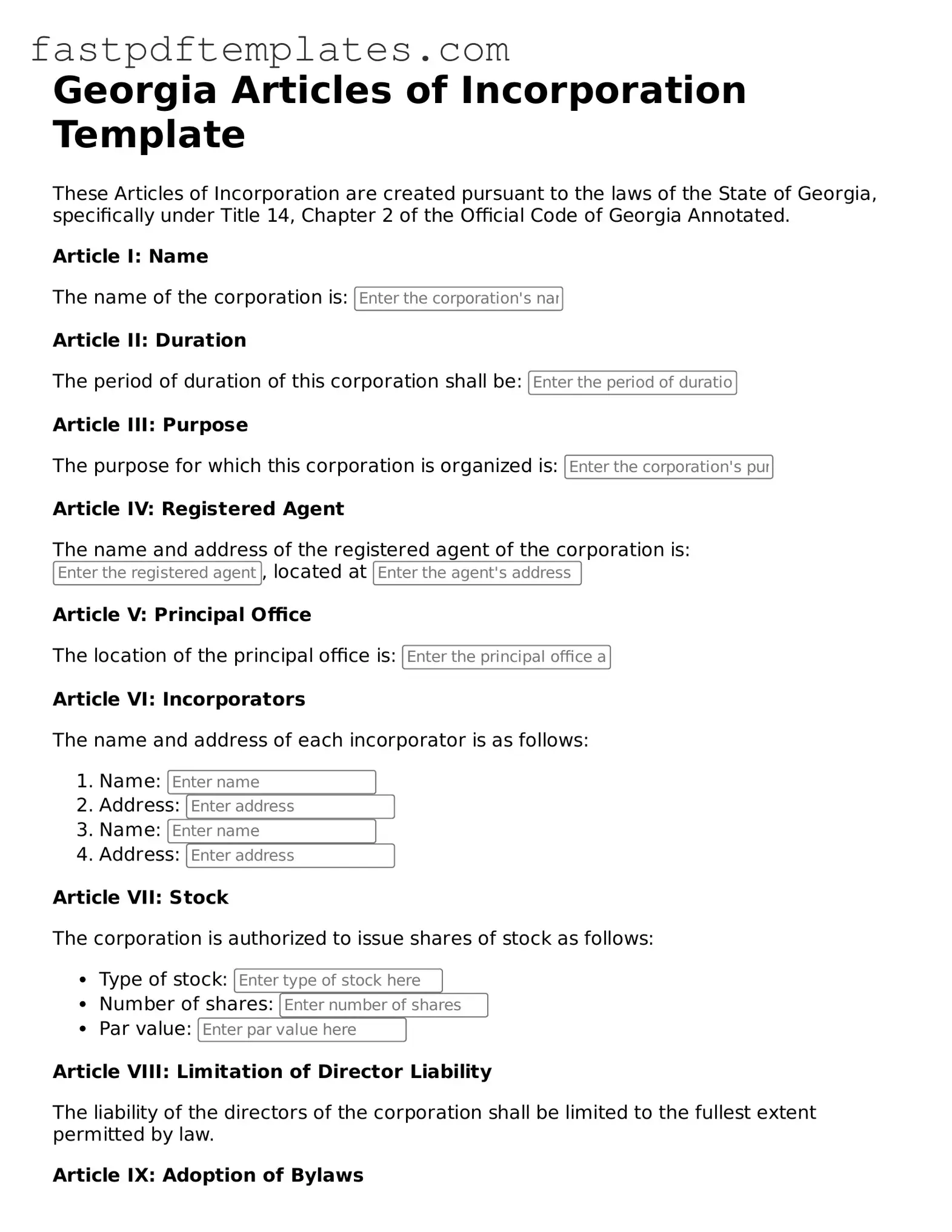Attorney-Approved Georgia Articles of Incorporation Document
The Georgia Articles of Incorporation form is a crucial document that establishes a corporation in the state of Georgia. This form outlines essential details about the corporation, including its name, purpose, and structure. By filing this document, individuals can officially create a legal entity that can conduct business, enter contracts, and protect personal assets.
Access Document

Attorney-Approved Georgia Articles of Incorporation Document
Access Document
Your form still needs completion
Complete your Articles of Incorporation online and download the final PDF.
Access Document
or
Click for PDF Form
